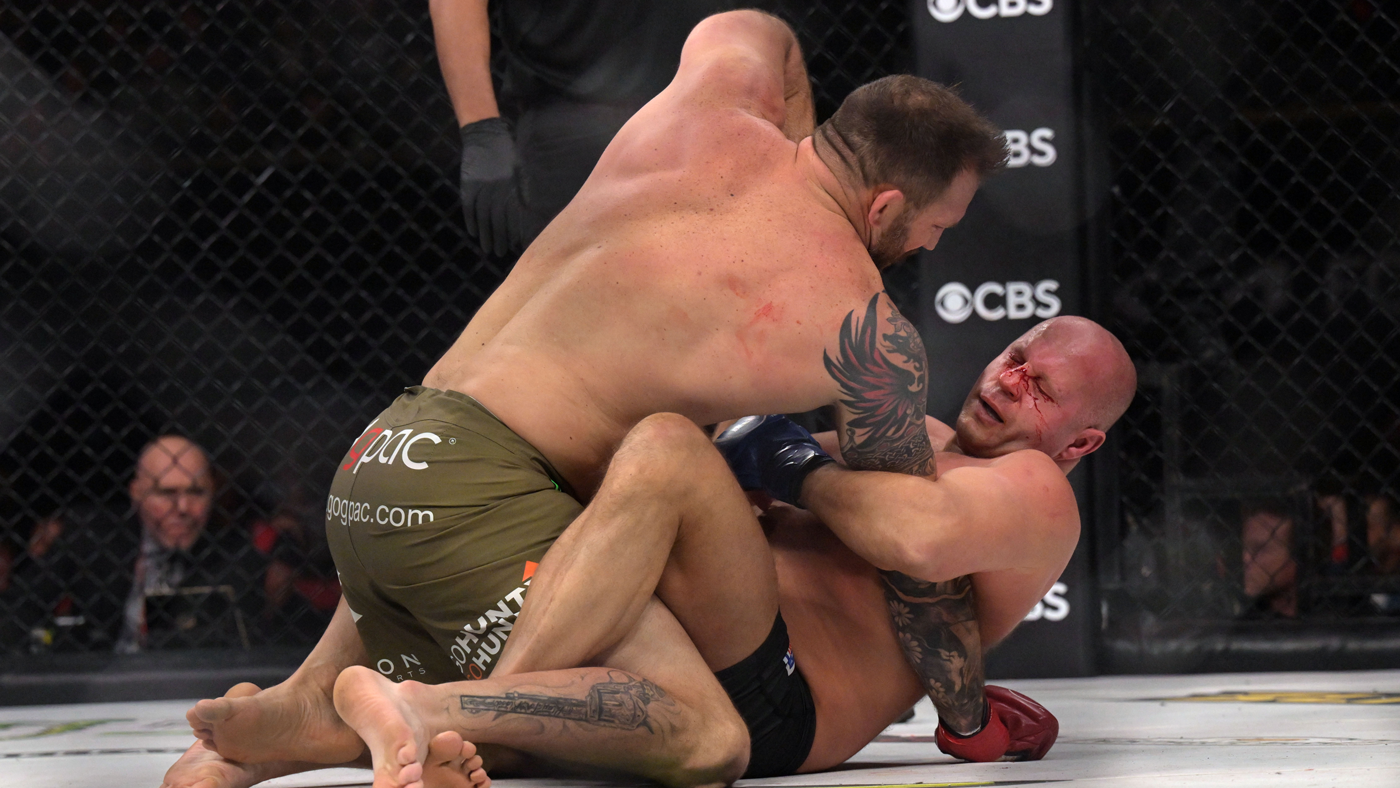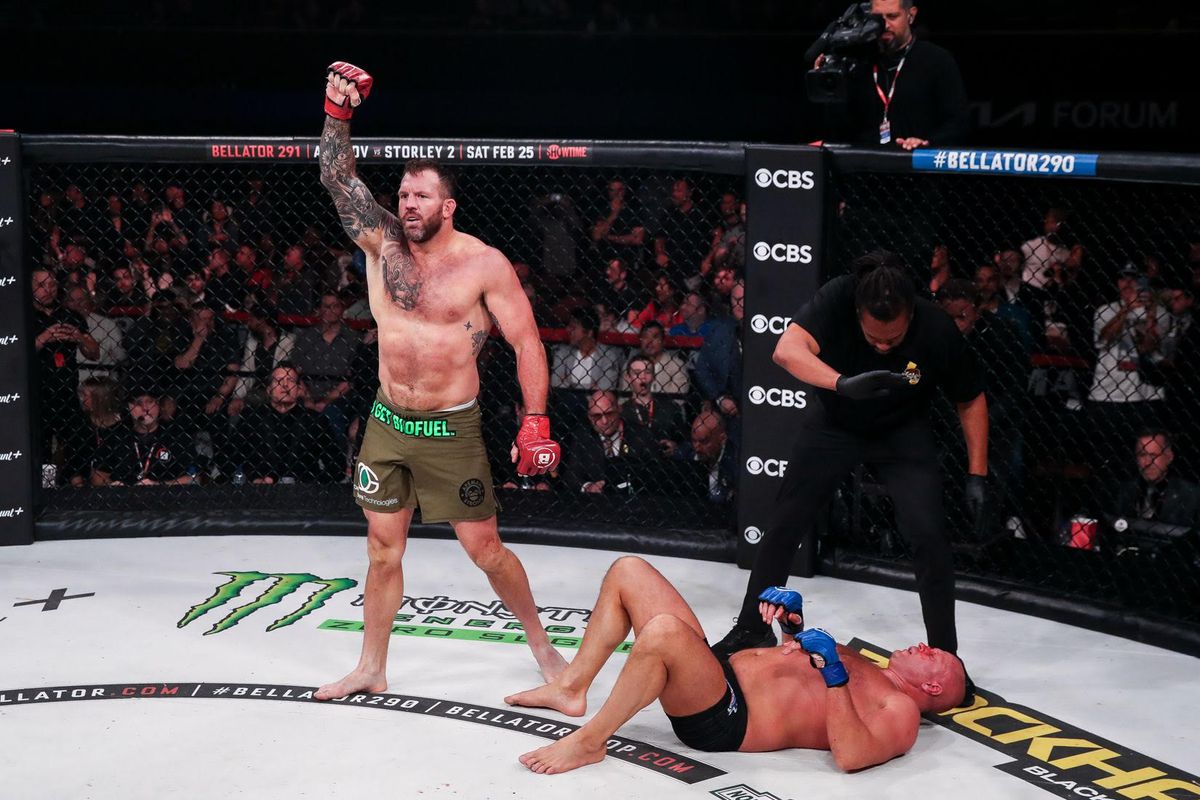2023 is shaping up to be a pivotal year in the world of MMA. With the UFC (seemingly) resting on its laurels as the dominant force in the market, the smaller promotions are seizing the moment to, if not compete directly, cement their position as the clear second place.
Singapore-based ONE Championship is making its U.S. debut this May; PFL have signed viral boxing sensation Jake Paul; even promotions like Poland's KSW and Japan's RIZIN FF are expanding to consolidate their positions in their regions.
As for Bellator MMA, theirs wasn't a move outwards, it was a move upwards. Having spent years on the cable channel Showtime, they moved to the major U.S. TV network CBS and to justify this leap in market share, they had one of the biggest landmarks in MMA history: the retirement fight of Fedor Emelianenko.
Emelianenko is one of the very few figures - in any field - who can fairly be described as the man, the myth and the legend.
Beginning his career in Russia in 2000, Emelianenko relocated to Japan a year later, where he became something of an urban legend. Neither FN Rings nor PRIDE FC were widely available, so footage of his incredible fights was only seen on blurry VHS tapes and bootleg DVDs.

Ryan Bader pummels Fedor Emelianenko with ground-and-pound strikes. /Bellator MMA
Ryan Bader pummels Fedor Emelianenko with ground-and-pound strikes. /Bellator MMA
By 2003 he was PRIDE FC heavyweight champion, and the expansion of the internet alongside the development of MMA in the West led to a situation where his fights were now fairly widely seen. And as the UFC's nascent heavyweight division at that time featured guys like Tim Sylvia, Gan McGee and Gabriel Gonzaga who clearly were not up to Emelianenko's level, the Russian was considered the "real" world heavyweight champ.
By 2007, PRIDE FC's yakuza ties had sunk the organization while the UFC's Las Vegas connections had made it the biggest fight federation in the world. UFC bought PRIDE FC - but Fedor said no and instead became the sport's hottest free agent. He even rubbed it in UFC President Dana White's face by eventually working in the U.S., but doing so for his biggest competitors; first Affliction and then Strikeforce, for promoter Scott Coker.
Here things went awry. Three big losses in a row ended Emelianenko's 27-fight unbeaten streak, making a mythical figure look remarkably mortal. From 2012 to 2016, Emelianenko bounced beck and forth between his homeland of Russia and his adopted home of Japan, racking up big paydays and easy wins.
Then, in 2017, he signed for Coker's new promotion Bellator and fought six times, winning four and losing two. This was clearly the final chapter of his career: able to put on exciting performances but palpably no longer elite. When COVID hit, curtailing his ability to train or travel from Russia to the U.S., he decided it was time to retire.
Coker, with one eye on the headlines, used Emelianenko's KO win over Tim Johnson at Bellator Moscow - a 2021 event created entirely to accommodate Fedor - to justify making his finale a world heavyweight championship rematch against Ryan Bader.
Once a mediocre UFC light heavyweight, Bader has had an excellent second chapter in Bellator where he has become a two-weight class champion by developing into an old school wrestle-boxer.

Ryan Bader stands with his arm raised in victory following his TKO win over Fedor Emelianenko. /Bellator MMA
Ryan Bader stands with his arm raised in victory following his TKO win over Fedor Emelianenko. /Bellator MMA
In 2019, Bader knocked out Emelianenko in 35 seconds to become heavyweight champion. The nature of the win - a sluggish Fedor falling for a feint before getting walloped by a looping left hook - suggested a different outcome in the rematch would require wishful thinking.
But it was different - this time it took two minutes and 30 seconds. At 46-years-old and with 47 contests under his belt, Emelianenko was simply too old to be competitive against Bader. Just like against Johnson, he had enough energy for one explosive flurry; unlike against Johnson, Bader used this openness to close the distance, grab the clinch and take him down to the mat, where he finished him off with ground and pound, a technique that was once Fedor's specialty.
Fedor Emelianenko's two decade career came toto a very forgettable end. It's what happened next that should be remembered: a "retirement ceremony" in which a dozen of Fedor's former rivals and MMA contemporaries came into the cage to celebrate his career.
Now the question is what comes next? Not for Fedor, nor for Bader, but for Bellator. Beginning a new era with the end of an old one is a risky move. But at the moment, that doesn't matter. In a sport that's never known how to see off its heroes, Scott Coker has come the closest, capping off an evening of dedication to an all-time great with a gesture that confirms his legacy.
[Header: L-R Renzo Gracie, Quinton "Rampage" Jackson", Chael Sonnen, Royce Gracie, Chuck Liddell, Fedor Emelianenko, Josh Barnett, Matt Hughes, Scott Coker, Frank Shamrock, Randy Couture and Dan Henderson pose for photo commemorating Emelianenko's last fight. /Bellator MMA]